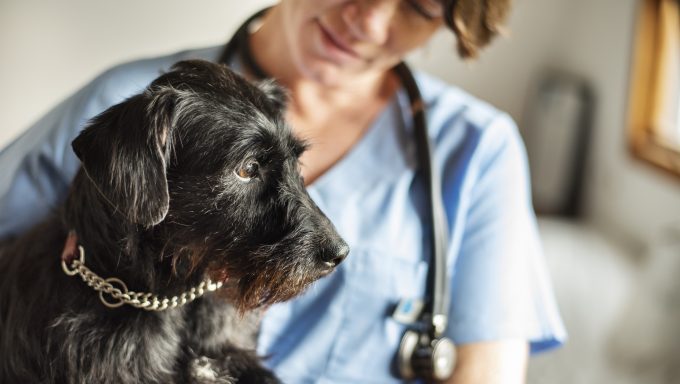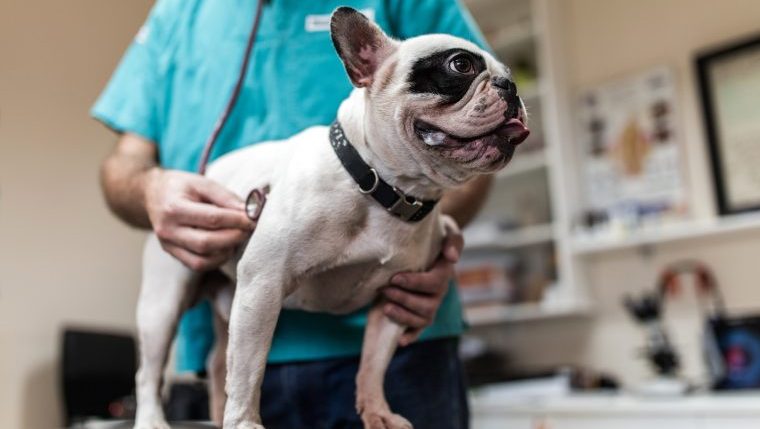
Dogs – they’re just like us! For better and worse. Dogs are stricken with many of the same cancers that people are, from lymphoma and melanoma to brain and breast cancers. By studying those dogs, researchers are learning how to better treat cancer in humans.
A Common Goal
60 Minutes recently caught up with Elaine Ostrander, a senior geneticist at the National Institute of Health (NIH), at a dog show in Connecticut, where she was swabbing all sorts of pups for DNA. The information she gathered there will help the NIH better understand the interplay between genes and cancer – in canines and humans.
“Dogs live in our world. They get all the same diseases we do. They eat our food. They’re exposed to the same environmental pollutants,” Ostrander told 60 Minutes host Anderson Cooper. “But they also have all the same genes that we do. And they have mutations in those genes that make them susceptible to everything you and I get – whether it’s diabetes or cancer or neuromuscular diseases. Everything humans get, dogs get.”
Certain breeds of dogs get particular cancers more frequently, which allows researchers to study which genes might be responsible. For example, Scottish Terriers have a 20 times higher risk of bladder cancer than your typical mixed-breed pup.
The process of studying naturally occurring cancers in animals in order to apply understanding to humans is called comparative oncology. It’s a burgeoning field, one partially funded by the White House’s Cancer Moonshot Initiative.
Promising Cancer Research
One form of cancer in which the field is making strides is osteosarcoma, an often fatal bone cancer. It’s relatively rare in humans, infecting about 1,000 people – mostly children and young adults – annually in the U.S.
“It’s harder to study ’cause there’s a smaller number of patients to, you know, study in large trials,” pediatric oncologist Dr. Elyssa Rubin told 60 Minutes. “And also since it’s rare, not a lot of funding of– goes to a lot of trials for it.”
But osteosarcoma occurs in dogs at about 10 times the rate it does in humans. This means that canines make ideal candidates for research about the disease.
University of Pennsylvania professor and veterinarian Dr. Nicola Mason began studying an experimental immunotherapy treatment for osteosarcoma in 2012, and is making headway with listeria (i.e. the same nasty bacteria that causes food poisoning). Researchers found that an injection of a modified version of listeria can kick dogs’ immune systems into gear, prompting killer immune cells to actually eradicate the cancerous cells.
60 Minutes profiled a 9-year-old Golden Retriever named Sandy. She had osteosarcoma and unfortunately lost a front leg to the disease. Sandy partook in a listeria treatment study, with promising results.
“Her body temperature started to increase, peaked around about four hours, and then started to drop down again,” Dr. Mason said. “We sort of want to see that because it tells us that the immunotherapy is in fact stimulating her immune response, which is what we want to happen.”
Thanks to the experimental treatment, Sandy, who was initially only given a year to live after the amputation of her leg and chemotherapy, is still alive and kickin’ – and cancer-free – four years later.
Humans will soon be benefiting from the dogs’ participation in these studies. In 2021, the FDA approved a phase II clinical trial using modified listeria to treat recurrent osteosarcoma in young adults and children.
It would seem dogs are not only man’s best friends, but lifesavers, too.




